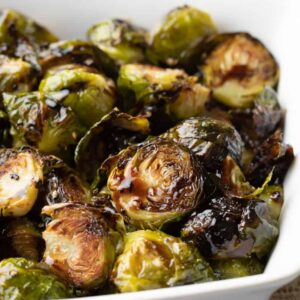What is Dementia?


Signs of Dementia:
- Having trouble with short-term memory
- Losing track of a purse/wallet
- Not paying bills on time
- Forgetting appointments
- Not remembering how to get out of the neighborhood or to a specific place
- Having trouble planning or preparing meals
The early signs of dementia can start off small and get worse over time. Everyone loses track of their wallet or keys occasionally, but if something like this is coupled with getting lost on the way to a frequently traveled place, it could be a sign of a larger issue. If you or a loved one notice signs of dementia, see a doctor as soon as possible to figure out what’s going on. While there is no cure for dementia, there are treatments that can slow it down.
- What causes dementia? The root cause of dementia is some sort of damage to your brain cells, which affects their ability to communicate. When your brain cells can’t communicate normally, this can cause things like memory loss and mental decline. Most causes of dementia are not reversible and can even get worse over time. However, depression, side effects from medication, excessive drinking, thyroid issues, and vitamin deficiencies can sometimes cause symptoms of dementia. If this is the case, the signs of dementia may improve when the cause is addressed and treated.
- Can I prevent dementia? Things like age and genetics can increase your risk of having dementia or Alzheimer’s disease, and these factors can’t be changed. However, research does indicate that a healthy diet, regular exercise, not smoking, and stimulating your brain regularly can all help to reduce your risk.
https://www.alz.org/alzheimers-dementia/what-is-dementia
Urinary Incontinence


Long term causes of urinary incontinence:
- Pelvic floor disorders
- Stroke
- Diabetes
- Menopause
- Multiple sclerosis (MS)
- Enlarged prostate
- Damage from prostate cancer surgery
While there are some short term causes of urinary incontinence like pregnancy, drinking excessive coffee or alcohol, medication side effects, and others, if you always have issues with incontinence that have been going on for a while, it is likely due to one of the long term causes listed above.
If your incontinence is chronic, or long term, and is affecting your daily activities, it may be time to have a conversation with your doctor about it. Although the conversation may seem a little embarrassing or uncomfortable, you shouldn’t have to suffer through. There are a wide range of treatments for urinary incontinence that you and your doctor can talk about.
https://my.clevelandclinic.org/health/diseases/17596-urinary-incontinence
Honey Balsamic Glazed Brussel Sprouts


- 1 lb. Brussels sprouts, cleaned and halved
- 2 tbsp. extra-virgin olive oil
- 1/2 c. balsamic vinegar
- 2 tbsp. honey
- 1 tbsp. dijon mustard
- 2 cloves garlic, minced
- Kosher salt
- Freshly ground black pepper
Directions:
- In a large skillet over medium heat, heat oil. Add Brussels sprouts, cut side down, and cook undisturbed, 3 to 4 minutes, until golden on the bottom. Add ¼ cup water and cover. Let Brussels sprouts steam until tender, 3 minutes. If the skillet seems dry, add more water a tablespoon at a time.
- Remove sprouts from skillet and set aside on a plate. Add vinegar, honey, mustard, and garlic and whisk to combine. Bring to a simmer and cook until thick and syrupy, 6 to 8 minutes. Return sprouts to pan, toss to coat, and heat through, 2 to 3 more minutes. Season with salt and pepper and serve immediately.






